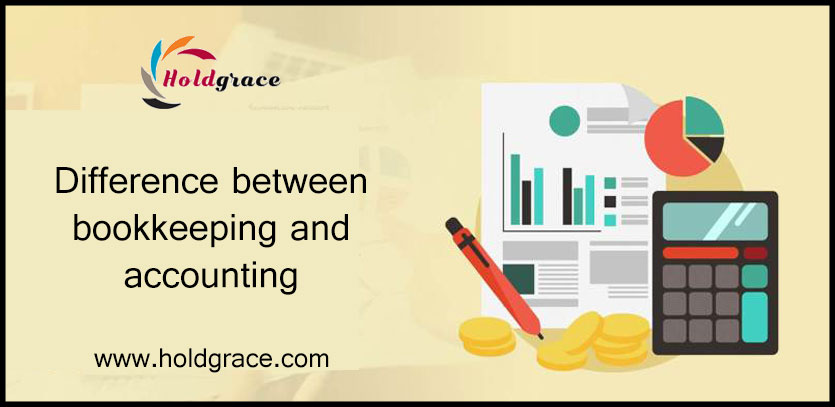

Bookkeeping accounting difference update#
Many businesses employ a bookkeeper who tends to do more than simply record payments and update the books. In some cases, the line between bookkeeping and accounting may become blurred.

While both deal with financial transactions and numbers, there are differences. To an untrained eye, it may seem like bookkeeping and accounting are very similar. The similarities between bookkeeping and accounting In this case, an accountant will use financial records and accounts to work out how much the client owes in tax, prepare and fill in the return, and arrange for payment to be made on time. Accountants can provide tailored advice based on a client’s finances, and they can also provide services such as preparing and filing tax returns. Accountants take this data, and use their expertise and skills to create reports and communications that provide the client with accurate information about their financial status. What is accounting?Īccounting involves using the information provided by bookkeepers to analyse, evaluate, summarise and interpret the financial situation of an individual or a business. The principal objective of bookkeeping is to keep a record of transactions in a logical, organised manner. Bookkeepers are responsible for looking after the books and preparing information for accountants. If you have a bookkeeper working at your business, for example, they will note down transactions on a daily or weekly basis to ensure you have a chronological record of incoming and outgoing payments. What is bookkeeping?īookkeeping is predominantly concerned with recording financial transactions and ensuring information is up to date. This guide will explore the main differences and provide you with all the information you need about bookkeeping vs accounting. There are key differences between bookkeepers and accountants. Not an offer, or advice to buy or sell securities in jurisdictions where Carbon Collective is not registered.Bookkeeping and accounting are both crucial business functions, but they are not the same. Past performance does not guarantee future results, and the likelihood of investment outcomes are hypothetical in nature. For more details, see our Form CRS, Form ADV Part 2 and other disclosures. They are not intended to provide comprehensive tax advice or financial planning with respect to every aspect of a client's financial situation and do not incorporate specific investments that clients hold elsewhere. Carbon Collective's internet-based advisory services are designed to assist clients in achieving discrete financial goals.

Before investing, consider your investment objectives and Carbon Collective's charges and expenses. Investing in securities involves risks, and there is always the potential of losing money when you invest in securities. Investments in securities: Not FDIC Insured All such information is provided solely for convenience purposes only and all users thereof should be guided accordingly. Carbon Collective does not make any representations or warranties as to the accuracy, timeless, suitability, completeness, or relevance of any information prepared by any unaffiliated third party, whether linked to Carbon Collective's web site or incorporated herein, and takes no responsibility therefor.

The articles and research support materials available on this site are educational and are not intended to be investment or tax advice. Please refer to our Customer Relationship Statement and Form ADV Wrap program disclosure available at the SEC's investment adviser public information website: CARBON COLLECTIVE INVESTING, LCC - Investment Adviser Firm (sec.gov).
Bookkeeping accounting difference registration#
Registration with the SEC does not imply a certain level of skill or training. Content sponsored by Carbon Collective Investing, LCC, a registered investment adviser.


 0 kommentar(er)
0 kommentar(er)
